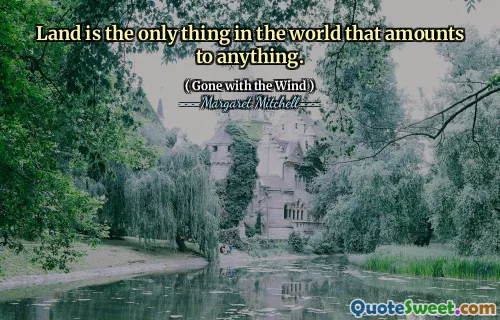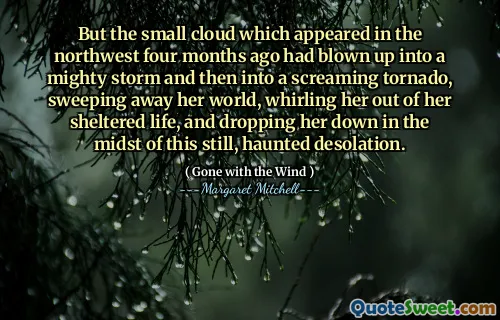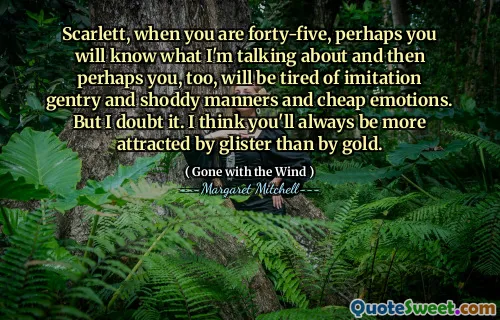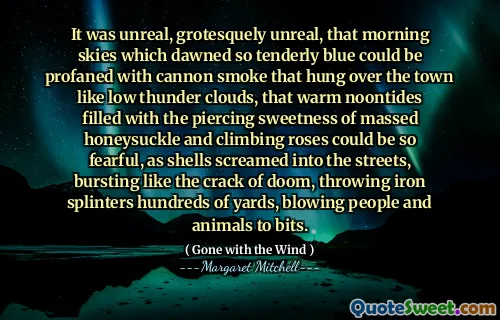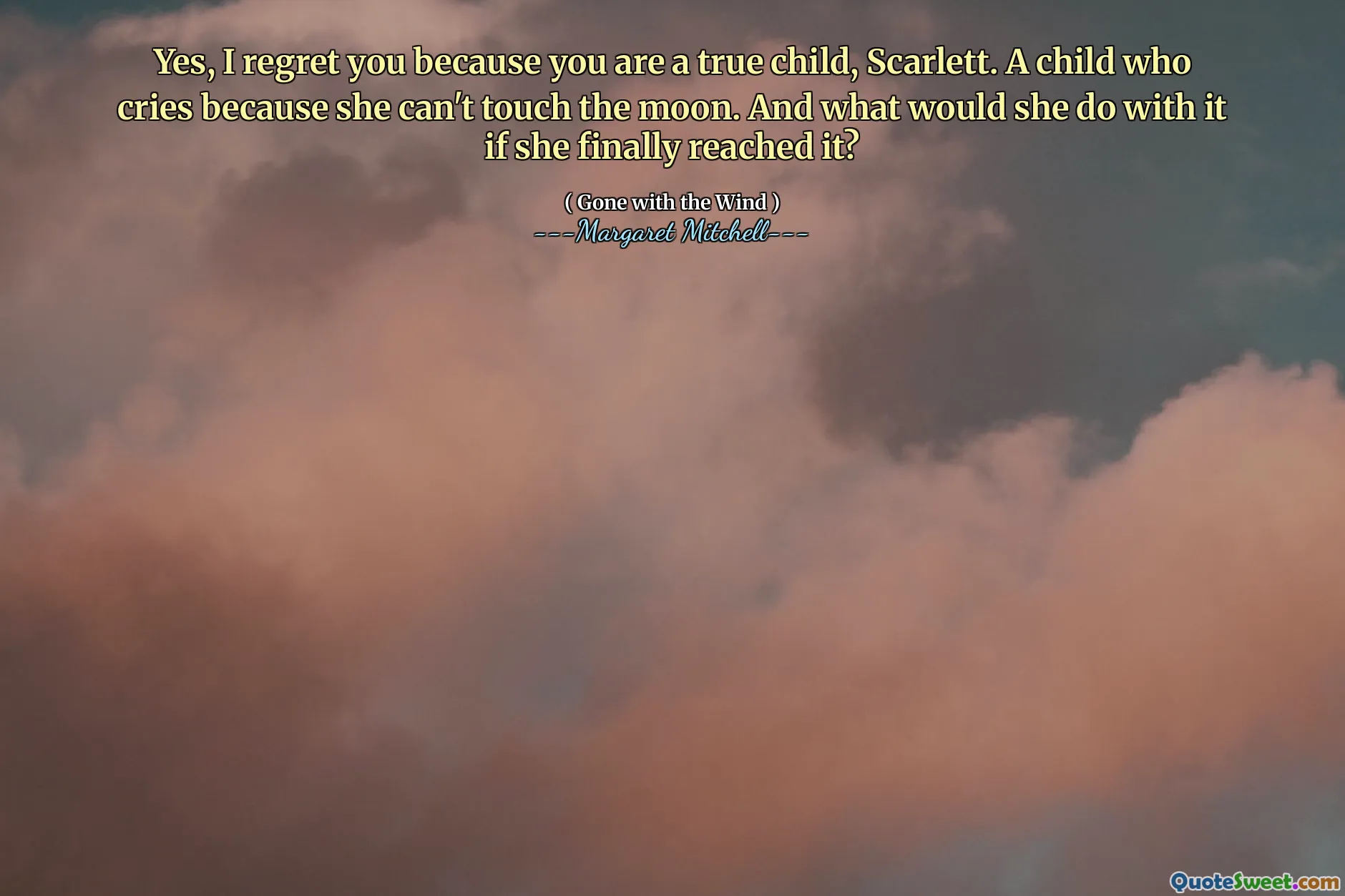
Yes, I regret you because you are a true child, Scarlett. A child who cries because she can't touch the moon. And what would she do with it if she finally reached it?
This quote beautifully captures the innocent longing and imagination that define childhood. The imagery of a child crying because she cannot touch the moon speaks to universal dreams—ambitions that seem vast and perhaps unreachable from a child's perspective. It reminds us of the purity of childhood desires, which are often fueled by a mixture of hope, curiosity, and an unshakeable belief that anything is possible. The metaphor of reaching for the moon symbolizes dreams that are lofty and seemingly distant, yet profoundly alluring.
Reflecting on this, one can see how childhood is marked by a sense of wonder that society often tries to diminish as we grow older. The innocence encapsulated in crying for the moon underscores the realistic naivety and pure aspirations characteristic of youth. It highlights how dreams may be grand but are often created out of pure heartedness rather than practicality.
At the same time, the quote hints at a nurturing awareness—perhaps regret—that real maturity involves understanding the limitations of such lofty pursuits while still cherishing the undying hope and imagination. The question posed—what would she do with the moon if she actually reached it?—urges us to contemplate the nature of ambitions: are they merely the pursuit itself, or is there deeper fulfillment in the journey and the dreaming? This reflection invites us to consider whether the unfulfilled dreams are what make life meaningful or whether reaching beyond our grasp can offer new perspectives, even if the ultimate goal remains elusive. As we age and gain experience, it’s vital to nurture that childlike wonder, balancing aspirations with reality without losing the sense of awe in the possibilities world holds.
